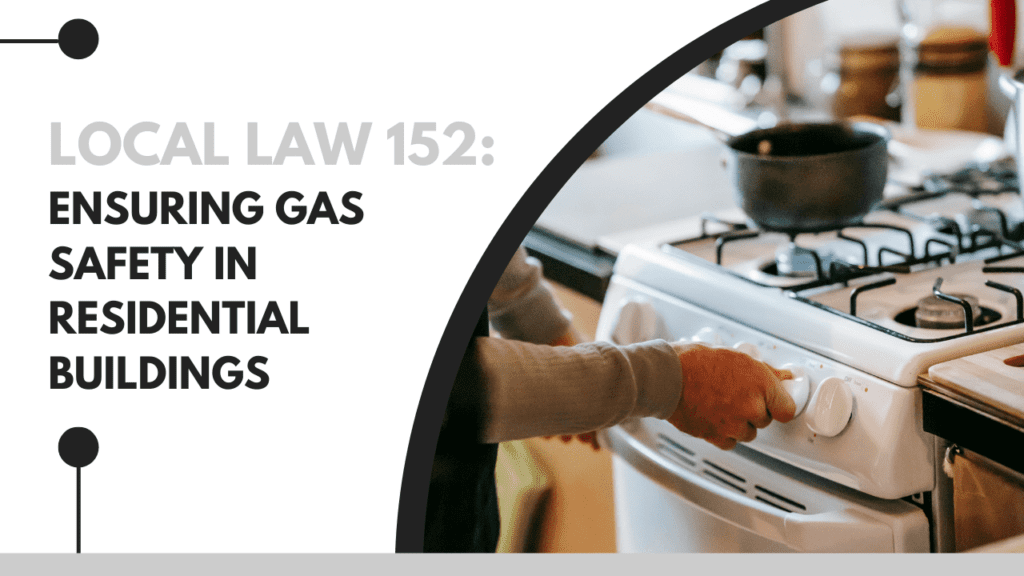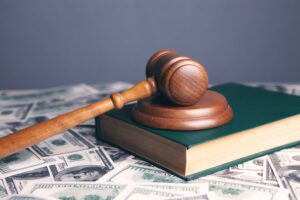
Keeping your residents safe is a priority for you, whether you’re renting out one NYC property or an entire portfolio of units and buildings in New York City.
Gas safety is particularly important, and there’s an existing law (Local Law 152) that ensures you’re keeping your residential building safe for owners, renters, guests, employees, and maintenance workers who spend time there.
In this blog, we will take a closer look at LL152, how to comply with it, and what it means for your NYC condominium or co-op.
Understanding NYC Local Law 152
Local Law 152 is a New York City law that requires building owners to conduct periodic gas line inspections in their properties. The law was enacted in response to several deadly gas explosions in New York, and it is aimed at preventing similar tragedies from occurring in the future.
All NYC building owners are required to have their gas lines inspected every five years by a licensed master plumber or licensed master fire suppression contractor. The law applies to all buildings in the city that have gas piping systems, regardless of the type of gas being used (natural gas or propane). The inspections are intended to ensure that gas piping systems are safe, up-to-code, and free from leaks or other defects.
Inspection and Compliance with LL152
Building owners and condo and co-op boards in New York City are responsible for scheduling and paying for the gas line inspections required by Local Law 152. The inspections must be conducted by a licensed master plumber or licensed master fire suppression contractor who is registered with the New York City Department of Buildings.
Examining an exposed gas piping, the inspector will look for:
- Defective piping
- Potential code infractions (using a sniffer device, a technology that finds issues before they become a problem)
- Non-compliant installations
NYC Local Law 152 requires the visual inspection of all exposed gas piping – or piping that is open to view. It does not include gas piping above a drop ceiling or behind an access door. It does include all piping from its point of entry into the building, in public spaces, hallways, corridors, and in mechanical and boiler rooms both inside and outside a building and on rooftops. Building services meters are also included.
Buried piping does not require inspection, and most importantly, no tenant spaces in your building will need to be inspected or entered.
Notifications and Reporting: LL152
Unsafe and hazardous conditions such as a gas leak, illegal connection or non-code compliant installation require immediate notification be made to the Utility, the Department of Buildings, and the property owners. In addition, any condition that if verified by the Utility would constitute a Class A condition, as defined in part 251 of Title 16 of NYCRR (New York Codes, Rules and Regulations), must be reported immediately. Any of these conditions will also require the inspector to notify the owner of the building immediately, either by phone call or email.
Outside of those emergency situations which require immediate notification, the inspector will complete a post-inspection report. The inspection report must be submitted to the Department of Buildings within 60 days of the inspection, and it must include detailed information about the gas piping system, including:
- The condition of the gas piping system
- Any defects that were found
- Required repairs that are needed
The Cost for a Local Law 152 inspection will depend on your property and the amount of time that the inspector has to spend checking your system and reporting on its condition. You may find yourself paying as little as $1,000 for an LL152 inspection, but you could also have a cost that reaches $10,000. Something else to be aware of? Any repairs or replacements that are required will not be included in the inspection price.
Even if your inspection cost is at the higher end of the spectrum, you don’t want to skip it. Failure to comply with this gas inspection can result in a fine of $10,000.
In addition to scheduling periodic inspections, building owners also are required to maintain gas piping systems in good working order. You have to address any defects or leaks promptly. Failure to comply with Local Law 152 can result in civil penalties and fines.
Because of the civil penalty, complying with Local Law 152 is more or less non-negotiable. You want to have the inspection completed before your due date in order to avoid those high penalties.
If you find you cannot meet the inspection deadline that’s required for your building, there is a process for requesting a 180-day extension. Look for the online form at nyc.gov/buildings and send it in as soon as you know you won’t make your deadline.
Benefits of Quickly Complying with Local Law 152
 There are good reasons to comply with this NYC local law, however. As already mentioned, this inspection can help ensure that gas piping systems in your buildings are safe and up-to-code, reducing the risk of gas leaks, explosions, and other hazards.
There are good reasons to comply with this NYC local law, however. As already mentioned, this inspection can help ensure that gas piping systems in your buildings are safe and up-to-code, reducing the risk of gas leaks, explosions, and other hazards.
It’s an important way to be building owners who are safe and responsive. Your reputation and your building’s reputation depend on demonstrating that you take safety precautions seriously.
By having gas piping systems inspected regularly, building owners can identify and address any defects or issues before they become major problems, potentially saving lives and property. Compliance with the law can also help building owners avoid penalties and fines, which are simply a waste of money.
If you’re confused by your responsibilities around this law or you’d like some help managing your inspection timeline, please contact us at Harlem Property Management. We’d be happy to help.
Schedule A Free Consultation
